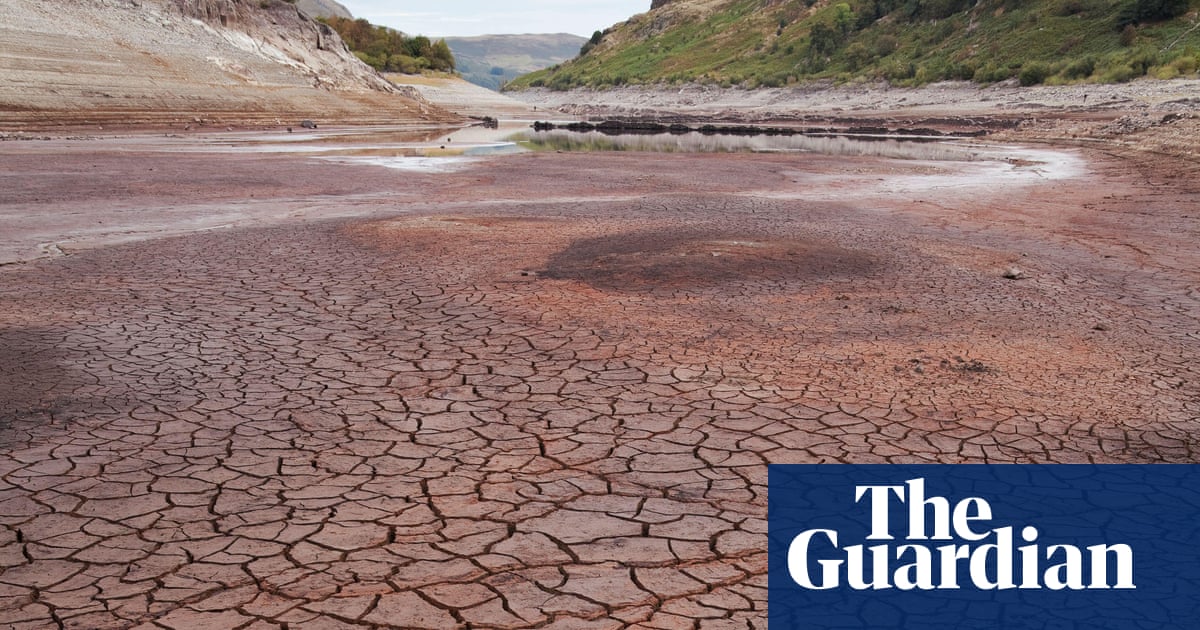Exceptionally low river flows are predicted across the UK this summer as a drought becomes more likely, scientists have said.
An update from the UK Centre for Ecology and Hydrology (UKCEH) says dry, warm weather is expected over the next three months, putting pressure on water resources.
Hosepipe bans and other forms of water rationing are more likely the longer the country goes without significant rainfall. On Tuesday the ThamesWaterchief executive, Chris Weston, said he was not ruling out restrictions.
James Wallace, the chief executive of River Action, said: “This crisis was avoidable. But thanks to corporate greed and regulatory complacency, our reservoirs are running dry and our rivers are polluted with sewage. Rather than punish the culprits, customers have been told by government they will be fined £1,000 if they break a hosepipe ban. Yet again, the public will bear the costs of a failing water industry.”
The UKCEH hydrological outlook reads: “Over the period May-July, river flows in most areas are likely to continue to be below normal, with the potential for current low to exceptionally low flows to persist in some catchments.”
Dwindling reservoir levels put waterways at risk as farmers and water companies abstract from rivers when other water sources run low.
This can lead to exceptionally low river flows, which may result in large-scale fish deaths and increase the pressure on rivers, particularly if water companies continue tospill sewage into them. River flows are already far below average for the time of year, with almost every catchment in the UK below normal. UKCEH records show that some areas have had the lowest October to March flows since records for those places began in 1958.
No reservoirs have been built inEnglandfor more than 30 years, which leaves the country particularly vulnerable to drought. Reservoir levels are lower than they should be after parts of the country had their driest spring on record, and if the dry weather continues as predicted there may be water shortages, leading to hosepipe bans and potentially other forms of rationing.
The Guardianreported recentlythat to avert a drought there would need to be rainfall at levels last seen in 2012, when record-breaking deluges caused floods across the country. This does not look likely with hot, dry weather ahead.
Sign up toDown to Earth
The planet's most important stories. Get all the week's environment news - the good, the bad and the essential
after newsletter promotion
Farmers are in for months of pain if the prediction proves correct, as groundwater levels are likely to remain low in areas of the UK throughout the summer. Farmers rely on this for irrigation, and low groundwater can lead to crop failures.
Wallace said: “Britain may be heading for drought but for decades since privatisation water companies have siphoned off billions in dividends while wasting 3bn litres of drinking water per day, rather than invest in the infrastructure needed to cope with a changing climate. We’ve had ample warning about the risks, yet instead of building resilience, the industry banked on business as usual, putting our economy, food production, even healthcare at risk.”
